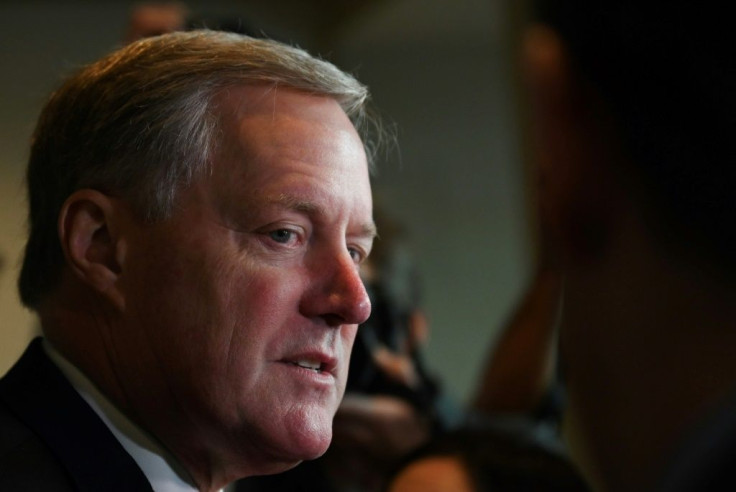As Lawmakers Dither Over Coronavirus Stimulus, Trump Considers End Run, Implementing Rejected Payroll Tax Suspension

KEY POINTS
- House adopted a $3 trillion stimulus bill in May, but it was dead on arrival in the Senate
- Suspending the payroll tax would boost the pay of workers 7.5% but do nothing for those who have lost their jobs because of coronavirus
- Democrats have rejected a one-week extension of the $600 weekly boost to unemployment compensation, pushing for an extention through the end of the year
As congressional leaders dithered over a new stimulus bill, advisers urged the Trump administration to look at unilateral actions to ease the crisis, but it was unclear just how much authority the president has to act.
Lawmakers have been unable to agree on the next round of economic stimulus despite the expiration of the $600 a week pandemic unemployment enhancement and the moratorium on evictions and foreclosures. Senate Majority Leader Mitch McConnell rejected a $3 trillion package passed by House Democrats in May but failed to start work on a new package in earnest until last week.
Meanwhile, President Trump was still pushing for suspension of the payroll tax, which funds Social Security and Medicare, despite rejection of that approach from both sides of the aisle because it does nothing to help those who already have lost their jobs.
Talks continued through the weekend, but both sides agree they still are far apart, with about 20 Senate Republicans saying they are against any further stimulus as both the budget deficit and nation’s deaths from COVID-19 approached 155,000 Monday.
White House Chief of Staff Mark Meadows said on CBS’ “Face the Nation” more talks were scheduled for Monday, “but I’m not optimistic that there will be a solution in the very near term.”
Democrats have rejected a one-week extension on the unemployment enhancement to keep pressure on the White House and the GOP. Ultimately, Republicans want to slash the benefit by two-thirds, worried that it is keeping some people from seeking jobs.
A University of Chicago study in May found 68% of those receiving pandemic benefits were earning more on unemployment than they earned in wages and recommended a “proportional benefit” instead. The problem, however, is state unemployment systems are ill-equipped to institute any proportional system quickly, and the recent surge of coronavirus cases has touched off a new wave of business closures. Many temporary layoffs have become permanent, meaning there’s a lack of jobs available to seek.
“The Trump White House and Senate leadership are essentially gaslighting the American public: As our jobs crisis worsens, they tout a so-called recovery while seeking to decimate the safety net that is keeping millions of Americans afloat,” unemployment expert Andrew Stettner of the Century Foundation told International Business Times in an email.
"They're so fussy about any anecdotal information they might have about somebody not going to work because they make $600 on this, but so cavalier about big money going to companies that shouldn't really be having it," House Speaker Nancy Pelosi said Monday.
Speaker Pelosi: "They're so fussy about any anecdotal information they might have about somebody not going to work because they make $600 on this, but so cavalier about big money going to companies that shouldn't really be having it." pic.twitter.com/BGqi5FNUmH
— The Hill (@thehill) August 3, 2020
On Monday, Trump called Pelosi “crazy.”
It was unclear exactly what the administration could do without congressional action, but Trump has been pushing the limits of executive power since he took office and defied court orders when his actions were struck down.
Outside economic advisers Stephen Moore and Phil Kerpen called on Trump to declare a national economic emergency in an opinion piece published by the Wall Street Journal on Sunday.
“The president needs to pull an end run, and there’s a legal way to do that. He should declare a national economic emergency and announce that the Internal Revenue Service will immediately stop collecting the payroll tax,” the pair wrote.
They added: “This bold act would flip the political tables. Democrats can’t credibly call it a tax cut for the rich. Mr. Trump could cap it at, say, $75,000 of income, so the vast majority of the benefit would go to straight into the wallets of middle- and lower-income workers, almost all of whom pay more payroll than income tax.”
The House already is on its August break and the Senate is scheduled to begin its break Friday. Both chambers could be called back if any agreement is reached.
© Copyright IBTimes 2025. All rights reserved.






















